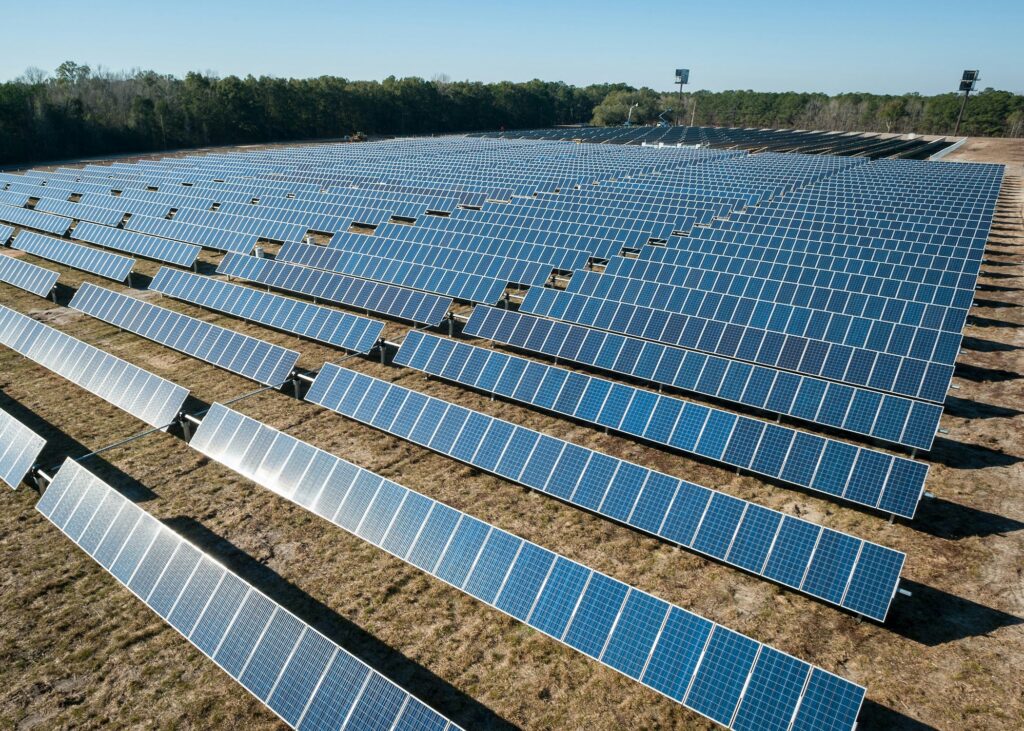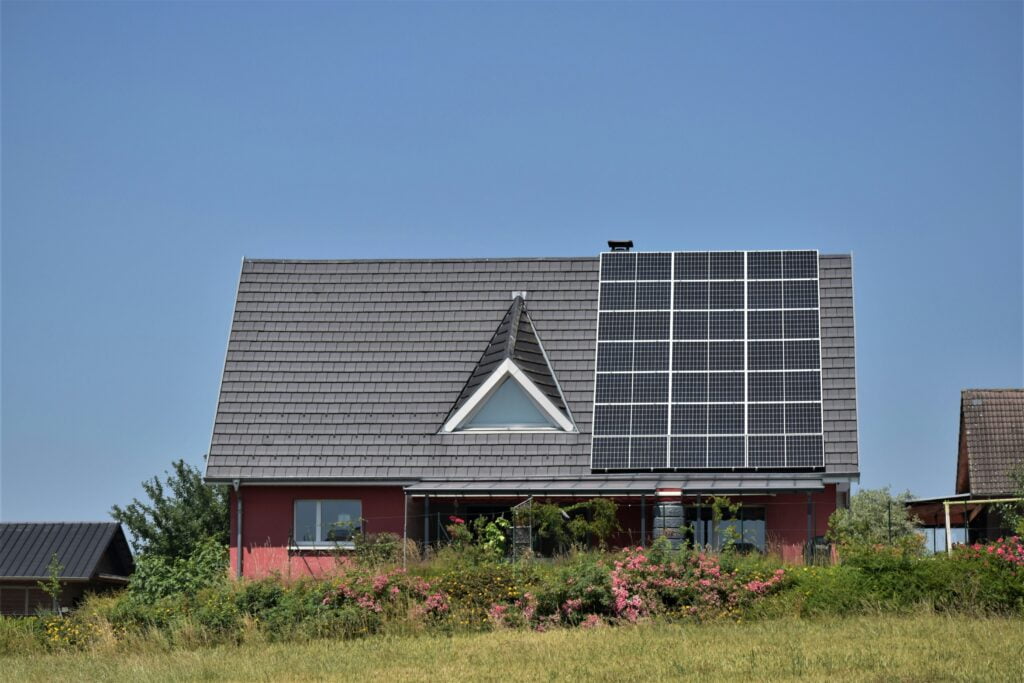What Is a Long Term Solar Power Kit? A long term solar power kit is an affordable solution designed to deliver reliable solar energy over an extended period. These kits can help those seeking energy independence or living off grid access electricity. With traditional electricity costs rising steadily while renewable energies become an increasing focus, long term solar power kits offer a sustainable means to lessen dependence on grid electricity while simultaneously cutting your bill costs.
Table of Contents
Components of a Long Term Solar Power Kit
A typical long term solar power kit comprises various key components that work together to capture and store sunlight for use when necessary, including:
Solar panels:
These devices use sunlight to convert it to electricity. High-grade panels made of crystalline silicon or monocrystalline materials offer higher efficiency levels.
Inverter:
The inverter converts DC power generated from solar panels into AC power for household appliances. A WiFi enabled solar inverter also allows remote monitoring of system performance.
Batteries:
Essential components of any solar energy system, lithium batteries, gel batteries or lead acid batteries store excess solar energy to be used when it isn’t. Lifepo4 and deep cycle gel options are popular choices due to their longevity and storage capacities.
Charge controllers:
Charge controllers regulate the power entering batteries to prevent overcharging. Advanced multi-point charge controllers and lithium chargers optimize charging in areas with variable sunlight conditions; these components form the backbone of any reliable solar energy system.
3. Benefits of Long Term Solar Power Kits

Long term solar power kits provide numerous advantages:
Cost Savings:
Once installed, solar power systems significantly lower electricity bills by producing power for free from their panels and offseting their initial installation costs through reduced bills.
Energy Independence:
With a solar panel kit installed, you can become energy independent or reduce reliance on public energy grid. This can be particularly helpful in remote locations or during power outages.
Environmental Benefits: Solar energy is a renewable, eco-friendly energy source. By switching to solar panels and kits, you are decreasing your carbon footprint and contributing towards creating a greener planet.
Backup Power:
For unexpected power outages, solar generators combined with battery systems offer reliable backup power solutions. Systems using MPPT charge controllers maximize charging and discharging cycles to maximize efficiency. 4. How to Select an Appropriate Solar Power Kit

When selecting a long term solar power kit, there are a few essential considerations you must keep in mind to ensure you find an appropriate system that suits your requirements.
how much electricity do you consume on a daily basis?
This will determine the size and type of solar panels needed; larger homes or businesses may require high voltage systems with more powerful inverters and batteries.
Lithium batteries and lifepo4 batteries are popular choices due to their higher capacity, durability, and longer cycle life compared to traditional lead-acid batteries. If initial costs are a concern for you, gel batteries or sealed gel cell options might be more affordable but may not last as long.

Before considering installation, carefully consider your options for installation. While certain solar kits are designed for easy DIY installation, larger or more complex systems may need professional assistance for optimal performance and efficiency. Correct installation of panels, inverters and charge controllers is crucial to optimizing system performance and efficiency.
Common Challenges with Solar Power Kits
Solar power kits present their own set of unique hurdles, but these can be easily managed with the appropriate knowledge and approach.
Initial Costs:
Although initial costs associated with purchasing and installing solar power systems can be considerable, government incentives, rebates and tax credits can help mitigate them over time as electricity bills decrease and savings accrue from reduced energy use will more than make up for initial investments.
Battery Maintenance:
Proper battery performance is vital to storing and providing electricity when needed. Lithium batteries tend to outperform and outlive their lead-acid and gel counterparts; while lead-acid and gel batteries require additional care. For optimal battery performance and longevity, ensure your lithium batteries remain in optimal condition to avoid issues like sulfation or degradation over time.
Weather Dependence:
Solar systems rely heavily on sunlight, so their output may fluctuate based on where you live. With advanced inverters and mppt charge controllers, however, optimal performance can still be reached in difficult conditions. Furthermore, high voltage lifepo4 and mppt voltage regulators are available to further optimize energy capture and storage efficiency.
Applications of Solar Power Kits
Long term solar power kits can be highly useful tools in many different situations.
Residential solar kits provide enough electricity for lighting and major appliances alike, from lights to water pumps and controllers for managing energy needs effectively in remote homes or cabins. Solar water pumps in particular make for efficient use in off-grid areas to access clean drinking water sources.
Companies of all kinds can reap the benefits of solar power kits by cutting operational expenses. Solar panels connected with high voltage systems can power commercial operations, helping save on utility bills while decreasing carbon footprint.

Solar generators equipped with lifepo4 or gel batteries can serve as vital backup power sources when traditional sources fail, providing power essential for medical equipment, communication networks, or refrigeration units.
Expert Tips to Maximize Your Solar Panel Kit
Get the most from your solar power kit by following these expert recommendations:
Battery Storage:
When considering long-term storage solutions, lithium or lifepo4 batteries offer better performance and longer lifespan than traditional lead acid or gel cells.
Utilize Advanced Technology:
For optimal energy management, choose multi-port programmable power factor-correction technology like mppt lithium chargers and charge controllers that regulate voltage to ensure safe charging. These devices also enable optimal charging.
Monitor and Maintain:
Make regular inspections of your solar panels, inverter and batteries using systems like the solar inverter wifi to monitor remotely the performance of these systems. Keeping an eye on their cycle life and output can ensure consistent performance from their batteries.
Upgrade Your System When Necessary:
As solar technology progresses, keeping up-to-date is increasingly important for optimal operation of solar power systems. Upgrading to more modern mppt voltage regulators or adding WiFi MPPTC Charge Controllers may improve functionality significantly and help maximize its potential.
Conclusion:
A long term solar power kit is an intelligent investment for anyone seeking to reduce energy costs, become more self-reliant and contribute towards creating a more sustainable future. Thanks to advances in solar technology, solar panels, batteries and inverters have become more efficient over the years, making adopting solar energy easier than ever.
No matter if you want to go completely off-grid or simply reduce reliance on traditional power sources, solar kits offer a reliable and eco-friendly alternative. Their combination of cost savings, energy independence, and environmental advantages makes solar energy systems attractive options for both residential and commercial uses alike.
Make the next step toward renewable energy and discover all of its advantages today by exploring a long term solar power kit!
FAQ’s:
What is a long-term solar power kit?
A system that uses solar panels, an inverter, and batteries to provide reliable energy over time.
2. What are the main components?
Solar Panels:
- Capture sunlight and generate electricity.
Inverter:
- Converts solar power into usable home electricity.
Batteries:
- Store energy for later use.
Charge Controller:
- Prevents overcharging of batteries.
3. What are the benefits?
- Lower energy bills
- Energy independence
- Eco-friendly power
- Backup power during outages
4. How do I pick the right kit?
Consider your energy use, home size, and battery type. Lithium batteries are long-lasting, while gel batteries are cheaper upfront.
5. Can I install it myself?
Smaller kits can be DIY, but larger ones may need a professional.
6. What are the challenges?
- High upfront costs
- Battery maintenance
- Weather impacts solar output
7. Where can I use it?
In homes, businesses, and off-grid locations, or as emergency backup power.
8. How can I improve performance?
Use high-quality batteries, advanced charge controllers, and regularly check your system.
9. Are there incentives?
Yes, many governments offer tax credits and rebates for solar installations.